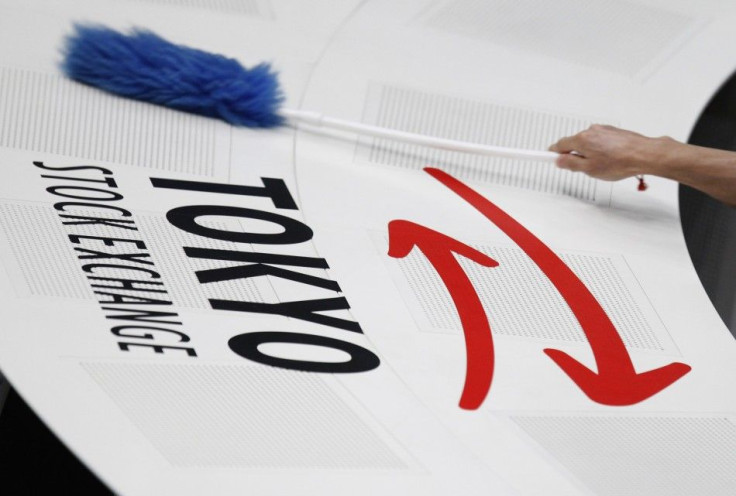Asian Stocks Fall Amid Fading Greek Optimism

Asian markets fell Tuesday as investor concerns on the euro zone debt crisis were revived amid fading optimism after the Greek elections and increasing borrowing costs of Spain.
Japan's Nikkei Stock Average declined 0.75 percent or 65.15 points to 8,655.87. Among major losers were Tokyo Steel Manufacturing Co Ltd (3.8 percent), JFE Holdings Inc (2.8 percent), Mitsubishi Steel Mfg Co Ltd (1.6 percent) and Osaka Steel Co Ltd (1.3 percent).
South Korea's KOSPI Composite Index remained flat at 1,891.77.
The Chinese Shanghai Composite Index fell 0.66 percent or 15.26 points to 2,300.79. Hong Kong's Hang Seng declined 0.06 percent or 11.14 points to 19,416.67. Major losers were China Overseas Land & Investment Ltd (3.41 percent), CNOOC Ltd (1.55 percent) and HSBC Holdings Plc (1.04 percent).
India's BSE Sensex rose 0.86 percent or 143.46 points to 16,849.29 to trim some of the losses it suffered Monday after the Reserve Bank of India kept the repo rate unchanged in its mid-quarter policy review. Major gainers were ITC Ltd (2 percent), TCS Ltd (1.09 percent) and ONGC (1.5 percent).
Asian markets gave back some of the gains made Monday as excitement over the Greek election outcome proved short-lived. Market attention was focused on the government formation in Greece after the elections Sunday. Negotiations started among the main Greek parties to form a coalition government against the background of fading optimism.
The outcome of the Greek elections failed to offer much relief for riskier Euro-sovereigns in general and Spanish bonds in particular. The 10-year Spanish government bond yields hit fresh euro-era high, crossing 7 percent.
The G20 meeting in Mexico has not offered help so far, and German Chancellor Angela Merkel's stance that it is not going to pay revealed Germany's entrenched position for bailout terms. Lack of progress to resolve euro zone's crisis threatens to inflict much severe damage to the market sentiment.
Market players are looking for clarity on coordinated efforts by central banks globally to announce monetary easing measures to regain growth momentum. But the Reserve Bank of India stunned investors Monday by announcing that it was not cutting the repo rate. The RBI indicated that a rate cut in the present situation could stoke inflationary pressures rather than support growth.
© Copyright IBTimes 2024. All rights reserved.




















